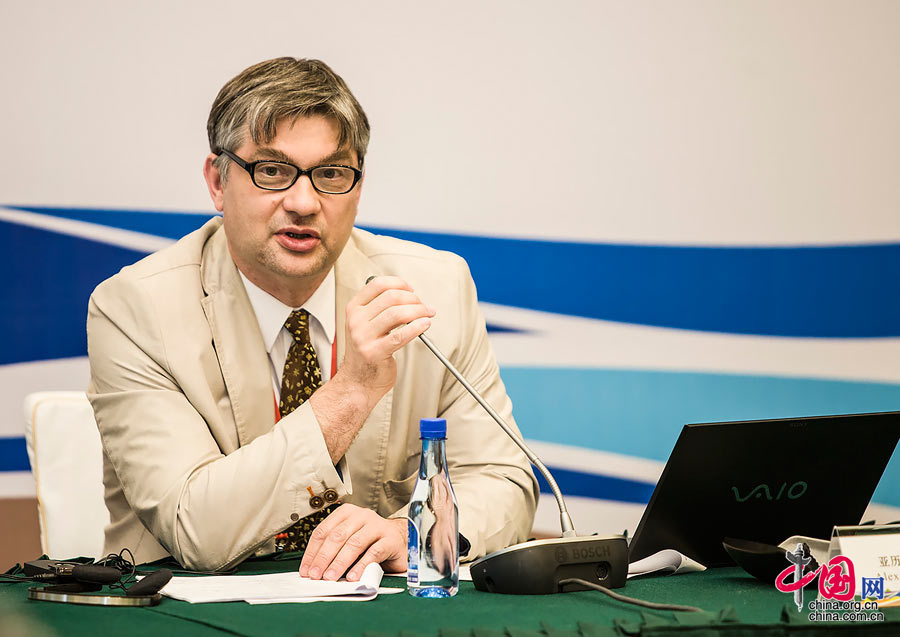Paper abstracts: Alexander Lukin
 0 Comment(s)
0 Comment(s) Print
Print E-mail China.org.cn, June 27, 2014
E-mail China.org.cn, June 27, 2014

Alexander Lukin
(Vice President, Diplomatic Academy of the Ministry of Foreign Affairs of the Russian Federation)
Author
Alexander Lukin is Vice-President of the Diplomatic Academy of the Ministry of Foreign Affairs of the Russian Federation, and Member of the Political Council, the Democratic Party of Russia (DPR). Lukin is also Professor of Moscow Academy of the Ministry of Internal Affairs, and founder and director of the Center for East Asian and Shanghai Cooperation Organization Studies, Moscow State Institute of International Relations (MGIMO University). He received his PhD degree in history from Diplomatic Academy of the Ministry of Foreign Affairs of the Russian Federation in 2007. In 1997-1998, he worked as Research Fellow of International Security Program, John F. Kennedy School of Government, Harvard University.
Abstract
The Silk Road Economic Belt initiative was announced by President Xi Jinping during a speech at the Nazarbayev University on September 2013, as a new pattern to deepen the cooperation between China, Central Asia and Russia. Rebuilding the Silk Road is not a new concept. However, China's initiative focuses on four aspects. First, it aims to deepen cooperation among countries in this region, including China and Russia. Secondly, it differs from the idea that the United States brought out. China hopes the Central Asia countries to cooperate with China and Russia first, and then work with other countries, like India, Pakistan, Iran, observer states of the Shanghai Cooperation Organization (SCO). Moreover, President Xi didn't mention Afghanistan at all. Obviously it was seen as a separate issue. Thirdly, different from the EU program, Xi talked about the political issues at the first place and pointed out that the political coordination was the foundation of economic cooperation. Fourthly, Chinese leaders believe that the collaboration between the SCO and the Eurasian Economic Community is one of the most important factors to deepen the regional cooperation. So China doesn't see the integration of Europe and Asia promoted by Russia, Kazakhstan and Belarus as a confliction with the interests of China or as competing with the SCO. On the contrary, China believes the collaboration is beneficial. From China's angle, all the SCO members should participate in the Silk Road Economic Belt initiative. The issues mentioned by Xi Jinping are the same as those that the SCO sets to face and solve, though not all the problems have been successfully solved, especially in promoting the multilateral economic cooperation among the SCO countries. Therefore, the Silk Road Economic Belt initiative will be a major step forward in building the multilateral economic cooperation. The building of the Economic Belt will be led by the SCO, which should be coordinated with similar projects launched by United Nations Development Program, United Nations Educational Scientific and Cultural Organization and other international organizations. This will put more financial and material resources together to promote the economic development of Central Asian countries, while excluding political interferences from outside the region.






Go to Forum >>0 Comment(s)